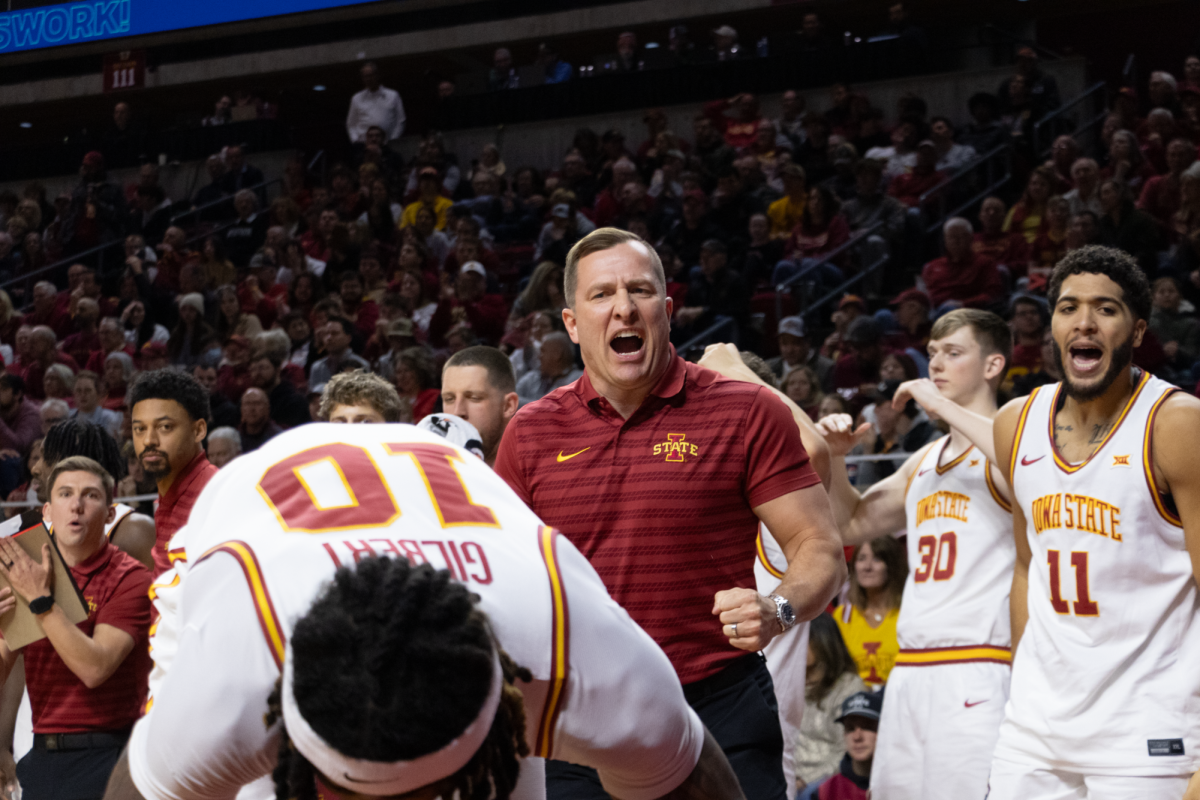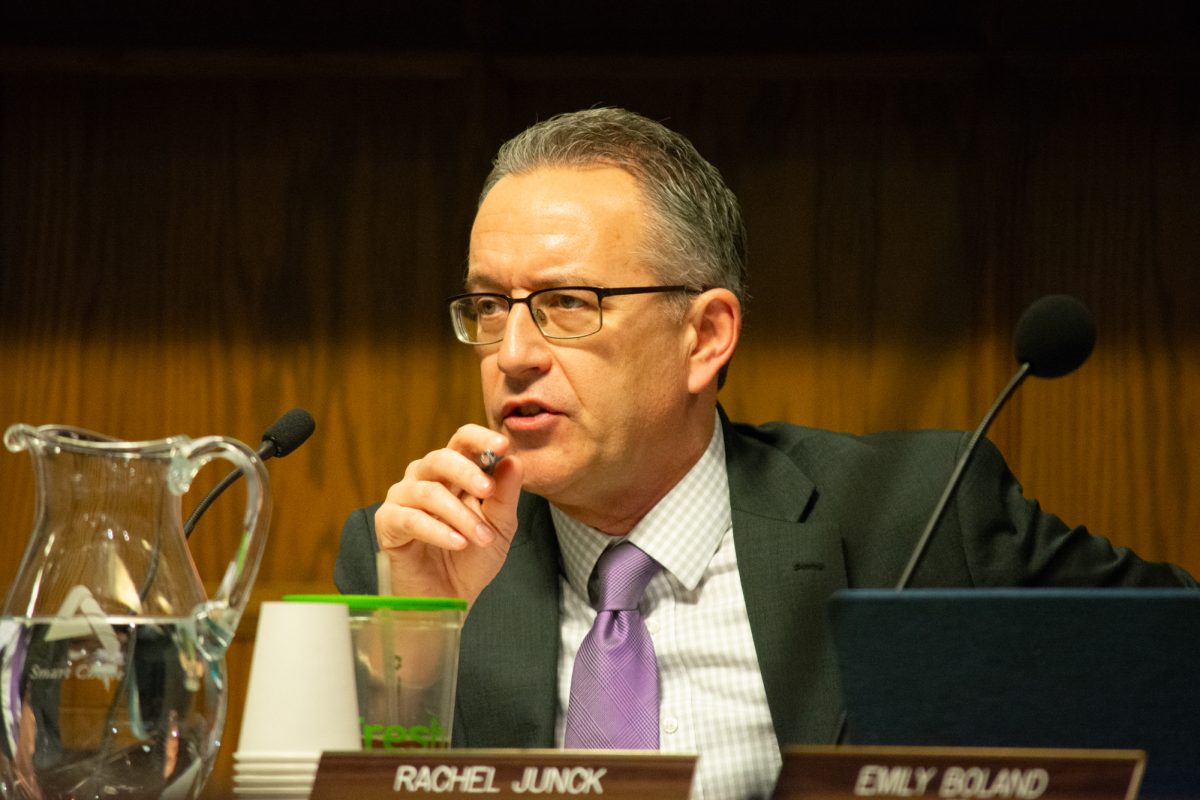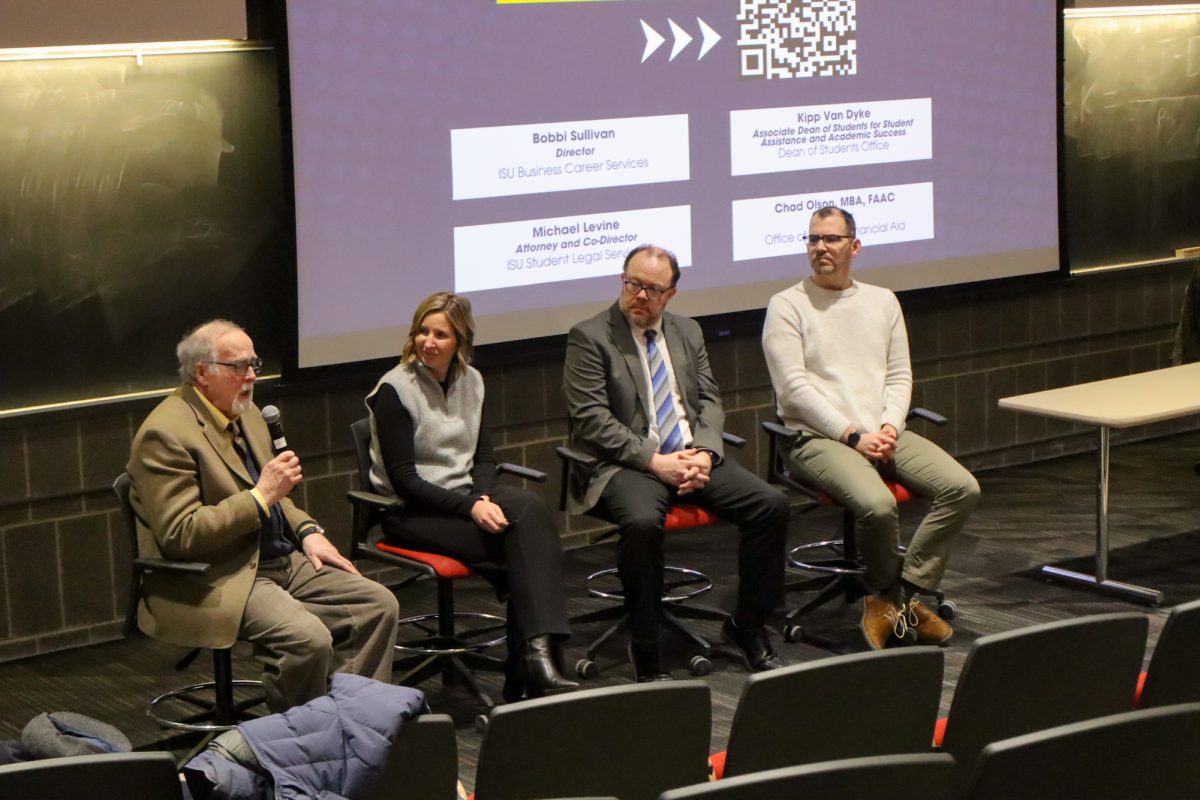Stop-smoking group helps student
January 23, 1998
Lately, Eric Johnson has been keeping his hands and mind busy by walking around and cleaning his apartment furiously.
Johnson is doing these things because they are ways for him to avoid lighting up a cigarette.
Johnson used to smoke a pack a day, but on Sept. 23, 1997 he became a member of a special group sponsored by the Student Health Center, the only stop-smoking group in Ames, named “Freedom From Smoking.”
Randy Mayer, health education coordinator at the Student Health Center and leader of Freedom From Smoking, conducted a random survey in April to find out how many Iowa State students smoke.
He discovered that while only 16 percent of ISU students smoke weekly, another 26 percent smoke occasionally (twice a month or less often). Five percent of ISU students, according to Mayer’s survey, have quit smoking after being a regular smoker.
In comparing the ISU survey to a national survey taken by the Centers for Disease Control, Mayer said, several similarities have shown up. The national survey discovered that 17 percent of college students are frequent smokers, and 29 percent had smoked at least once in the previous 30 days.
“You can’t help but walk across campus and pick out 30 to 40 people” who are smoking, he said.
Mayer said his survey revealed that few students have quit smoking.
Cathy Callaway, director of School-Board Programs for the American Lung Association of Iowa, agreed. “Most of them plan to quit when they get out of the bar scene and get a job,” Callaway said. However, she said, most people who think they are going to quit smoking after they graduate are not successful.
Johnson, who started casually smoking as a junior in high school, said he started smoking when he was a sophomore in college to cope with the stress of being an undergraduate.
“I’m a procrastinator, so smoking helped me when I was making deadlines and doing things at the last minute for school,” Johnson said.
Although only a few college students quit smoking for good, Mayer said he thinks it’s easier for college students to quit while still in school.
He said it’s easier because college students do not seem to identify themselves as smokers as much as people who have smoked for 10 to 20 years.
To remind himself why he wants to quit, Johnson carries a card in his wallet that lists his top five reasons for quitting the habit. He said his first reason was the cost and his second, was the habit’s unattractiveness.
Freedom From Smoking has an on-campus program to help students quit smoking and to persuade more college students to quit. Mayer said he wanted to “advertise the group a bit more” by placing ads and posters around campus.
The group received help with advertising from Nicotrol and Nicoderm, companies which specialize in devices that help people quit smoking. Each company supported the group by contributing $150.
Johnson said he had to pay $20 for membership in the stop-smoking group, but if he attends every meeting he’ll get $10 back.
Although Mayer tried to recruit more college students to Freedom From Smoking, he said it has consisted of more people from the Ames community than ISU students.
“If I were just inundated with college students, I wouldn’t let others in,” Mayer said.
According to Mayer, his cessation group lasts eight weeks, and it usually meets weekly for two hours.
At the first meeting, members of the stop-smoking group are asked to keep track of how much they smoke during the following week. They are also supposed to write down how they feel when they light up a cigarette.
Then, in the second meeting, each person talks about the different situations and times of day that triggered them to smoke.
During the third meeting, Mayer said, he instructed the group to make a plan to cope with the different situations that caused them to smoke.
Members of the stop-smoking group finally went cold turkey during the group’s fourth meeting.
He said during the fourth meeting, they each wrote letters to their cigarettes thanking them for the pleasure smoking had given them. And then they told their cigarettes good-bye.
Johnson had tried to quit smoking four or five times prior to joining Freedom From Smoking. However, he said he did not succeed because he only had himself. Mayer also said the group incorporates a positive peer pressure for its members not to smoke.
A dietitian and an exercise specialist talked to the group during the sixth and seventh meetings about alternatives to smoking.
Prior to the last session on Nov. 11, 1997, Johnson said he “smoked over the weekend,” but he said the group has taught him to not see smoking a few cigarettes as a catastrophe.
“I saw it as a slip instead of a failure,” Johnson said.
Even though he has smoked a few cigarettes since quitting, Johnson said, he thinks this time he has quit for good. He gave most of the credit for his success to the Freedom From Smoking group.
Mayer said the next session will begin Feb. 17, and people who are interested can contact the Student Health Center.






